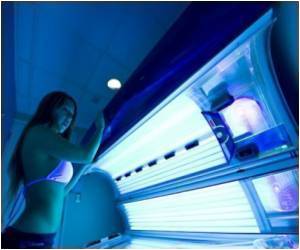
Around 25 percent of the healthy cells carried at least one cancer-associated mutation.
Dr Phil Jones, a Cancer Research UK expert in pre-cancer and author on the study, said: "It was quite astonishing to find so many genetic changes in cells in normal skin. It seems that, even though so many cells have DNA damaged by the sun’s UV rays, the skin keeps working as normal.”
The researchers used advanced DNA analysis technology for the study on 234 biopsies.
Samples were collected from four patients aged between 55 and 73 who had variable histories of skin exposure and getting cosmetic surgery to tighten their eyelids.
DNA analysis revealed 3,760 different mutations from all 234 biopsies, equivalent to more than 100 cancer-associated mutations per square centimeter of skin.
Advertisement
“These first cancer-associated mutations give cells a boost compared to their normal neighbors,” explained study author Dr Peter Campbell.
Advertisement
Sarah Williams, Cancer Research UK’s health information manager, said, “The findings reinforce the need to stay safe in the sun. Although we all need some sun, people can avoid sunburn and skin damage when the sun is strong by spending time in the shade, covering up with clothing and using plenty of sunscreen with at least SPF15 and 4 or more stars.”
The study is published in Science
Source-Medindia















